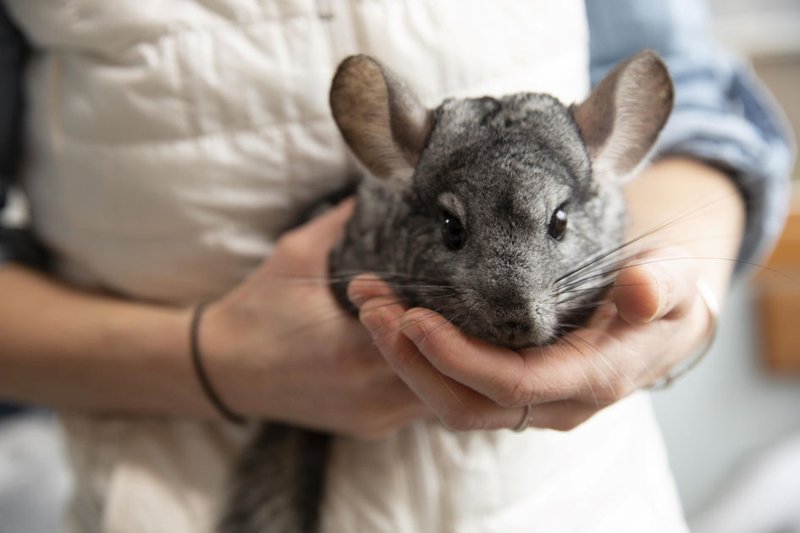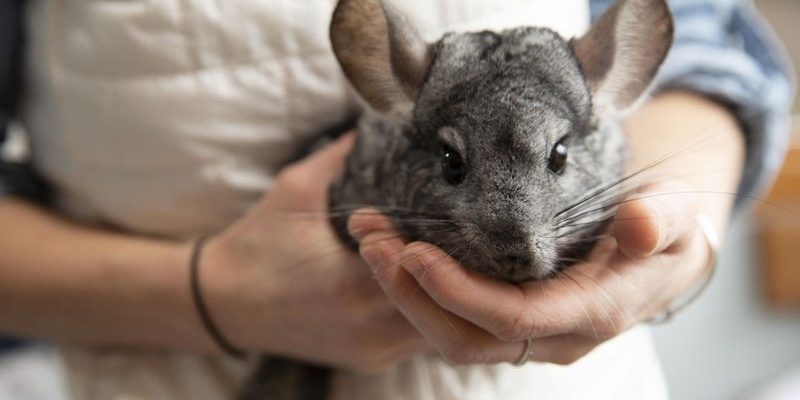
So, what are the common health concerns in Black Velvet Chinchillas, and how can you prevent them? Let’s break down this subject over a virtual cup of coffee. From dental issues to respiratory problems, understanding your chinchilla’s needs is crucial for their long-term happiness and health.
Understanding Dental Health Issues
One pressing concern for Black Velvet Chinchillas is dental health. These little furballs have continually growing teeth. If they don’t wear them down properly, it can lead to painful dental problems. Imagine trying to eat with a toothache; that’s what your chinchilla might feel if their teeth become overgrown.
To prevent this, make sure they have access to hay—the best tool for keeping their teeth filed down naturally. Timothy hay or orchard grass hay can do wonders. Additionally, providing them with chew toys made from safe materials will encourage them to gnaw and keep their teeth healthy.
Here’s the thing: if you notice your chinchilla drooling excessively, having difficulty eating, or showing signs of pain, it’s time for a vet visit. Routine check-ups can catch dental issues before they progress, keeping your furry friend happy and pain-free.
Respiratory Problems: A Hidden Threat
Another concern is respiratory problems. Chinchillas are sensitive to their environment, and poor air quality can wreak havoc on their lungs. Think of it as them living in a beautiful but dusty oasis—too much dust, and it becomes less of a paradise and more of a problem.
To prevent respiratory issues, ensure your chinchilla’s habitat is free from dust, drafts, and strong odors. Regular cleaning of their cage and the use of safe bedding materials will help maintain a healthier environment. Avoid using cedar or pine shavings, as these can release harmful oils. Instead, opt for aspen shavings or paper-based beds.
If you spot any sneezing, nasal discharge, or labored breathing, don’t hesitate to contact your vet. Catching these problems early can make a world of difference in treatment.
Maintaining a Balanced Diet
You might be wondering how diet affects the overall health of your Black Velvet Chinchilla. Well, nutrition plays a vital role in keeping them fit and vibrant. An imbalanced diet can lead to obesity, which can cause various health problems like heart disease or joint issues.
Offer your chinchilla a mix of high-quality pellets, hay, and occasional treats like small amounts of dried herbs or fruit. Make sure to avoid sugary snacks and overfeeding, as those can quickly lead to weight gain. Think of their diet as the foundation of a solid house; if it’s not strong, everything else can crumble.
Regularly monitor their weight and adjust their portions accordingly. A happy chinchilla will remain active and alert, and you’ll notice if they start gaining weight quickly.
Skin Issues and Fur Loss
Skin problems can also crop up for Black Velvet Chinchillas. One common issue is fur loss, which may result from stress, poor nutrition, or parasites. Imagine if your cozy sweater started to unravel; it would be concerning, right? The same goes for your chinchilla’s fur.
To prevent skin issues, provide a stress-free environment and proper nutrition. Regular dust baths are essential for maintaining their fur’s health and keeping it shiny. Chinchillas love to roll around in volcanic ash dust, which keeps their coats clean and free from oils.
Also, keep an eye out for signs of itching or excessive grooming. If you notice patches of missing fur or skin irritation, consult your veterinarian to rule out any underlying issues or parasites.
Common Behavioral Concerns
Beyond physical health, behavioral issues can also affect your Black Velvet Chinchilla. Chinchillas are social animals; if they feel lonely or bored, they may resort to destructive behaviors, such as chewing on cage bars or excessive grooming.
To prevent behavioral issues, make sure your chinchilla has plenty of enrichment in their environment. This can include toys, tunnels, and opportunities for social interaction. Consider adopting a companion chinchilla to help satisfy their social needs. Think of this like giving your friend a buddy to hang out with; they simply thrive better together!
If you notice signs of stress, like pacing or hiding for long periods, take a moment to evaluate their environment. Sometimes, a small change can make a big difference in their happiness.
Routine Veterinary Care
You can do a lot to prevent health issues, but nothing beats regular veterinary care. Think of your vet as your chinchilla’s best ally. Just like you’d go for check-ups and cleanings, your furry friend needs the same attention to stay healthy.
Schedule regular check-ups to monitor for any potential health issues. Your vet will check their teeth, fur, skin, and overall health. They can guide you on diet, habitat, and grooming needs, ensuring you’re giving your chinchilla the best life possible.
Vaccinations and preventative medications can also play a role in keeping your chinchilla healthy. Staying proactive can help catch issues before they develop into bigger problems.
In conclusion, keeping your Black Velvet Chinchilla happy and healthy involves understanding their unique needs. From dental care to diet and routine vet visits, being attentive and informed makes a huge difference. Just like any treasured pet, your chinchilla deserves love, care, and a little extra attention. By staying proactive about their health, you can ensure they’ll be your cuddly companion for many years to come.

